When Andoni Iraola’s Bournemouth suddenly find themselves against a massed defence, or with an attacking avenue blocked, they are given an instruction that is rare in modern football. That is, really, no instruction at all. Trust yourself.
“I sometimes value much more a player carrying the ball and forcing things to happen,” Iraola explains. “I think when you play too positional – one, two touches to find a free man – you sometimes lose the initiative from the players to just take their man on and attack the spaces.”
The idea, as is often the case with a vibrant Bournemouth at the moment, goes against a lot of expectations. So many modern teams, naturally influenced by the post-Pep Guardiola era of the “positional game”, seek to stay in shape to force an opening elsewhere. Arsene Wenger pointedly spoke about this at a football writers’ gala in celebration of Dennis Bergkamp on Sunday. He asserted that the modern era has “lost” that capacity “to be surprised”.
Maybe it’s no surprise that a man who adored No 10s and had Michael Laudrup as his idol – “those passes to Romario, I was in love!” – is restoring that sense of magic. Ever modest, Iraola won’t go that far.
“I wouldn’t say magic,” he smiles. “I would say they have the freedom to risk a little bit in the dribbles.
“We have to prepare [positional] patterns, but we cannot just prioritise them. If you can see that you don't have a teammate ahead, forget about the pattern, just drive the ball and try to force things to happen. I want him to attack first.”
Iraola diplomatically states that you have to be “very, very, very good” to play a full positional game, that it requires “perfect timing”, and that its global success speaks for itself.
Others are more effusive about Iraola’s approach, not least Guardiola himself. The Manchester City manager said this week: “Today, the modern football is the way that Bournemouth play.” Iraola is the man of the moment, lauded for his football and a series of superb results, while typically being talked about as a candidate for the wealthiest clubs. And it might be even more effusive, those at Bournemouth chuckle. The issue is the scintillating form of this Saturday's visitors – everyone is talking about Nottingham Forest.
“I don’t feel like this,” Iraola says of his current reputation. “Forest is now the exceptional team. People are probably paying more attention to Bournemouth because we are doing well but it’s much more important they talk about us at the end of the season!”
Bournemouth-Forest has nevertheless become one of the games of the moment, a compelling match between two overachieving sides who play genuinely distinctive football, with both seeking to continue their surges. One difference is between the managers. If this spell has been cast as Nuno Espirito Santo’s redemption, it is Iraola’s rise.
And yet another element that stands out with the 42-year-old is how he doesn’t think that managers should be elevated in this way. Iraola is speaking in one of the suites at the Vitality Stadium three days after the 4-1 win over Newcastle United, which he describes as “probably the best game since I’ve been here”.
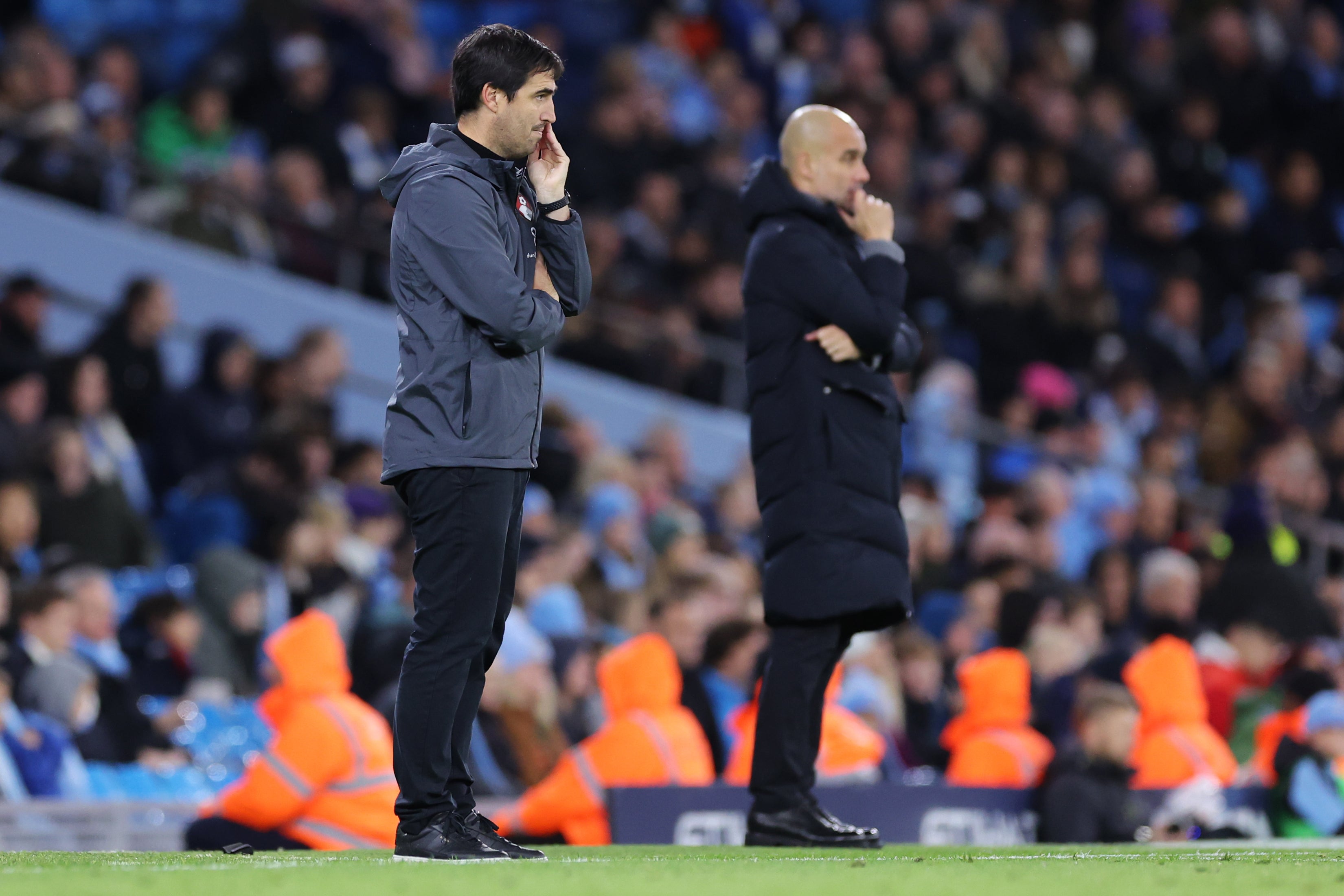
What is immediately notable with Iraola is that he doesn’t have the personal intensity of many of his peers. He is laidback, other than when he’s asked specific questions about play and he starts to animatedly draw responses out on the table.
His trust in individual talent in such situations is reflected by his attitude to the job. In an era of the managerial ideologue, Iraola insists coaches are not the protagonists, instead describing them as “assistants” who are only there to help the players.
“At the end, it’s a game for the,” he explains.
As with the love for Laudrup, that isn’t a surprise from someone who reveals he often remarks to his squad: “I would pay a lot of money just to train with you.”
“Sometimes we train before a game in the stadium under the lights and to have this feeling of crossing a ball, scoring a goal… no, no, playing is the best thing! But this is over for us, so now we have to do other things.”
Iraola has already done a lot, and there are chief executives at rival clubs who believe it is precisely his approach – an almost selfless adaptability – that may represent the archetype for football’s future. Increasingly performance-led clubs are going to require coaches who fit, rather than those who expect everything to fit to their ideal.
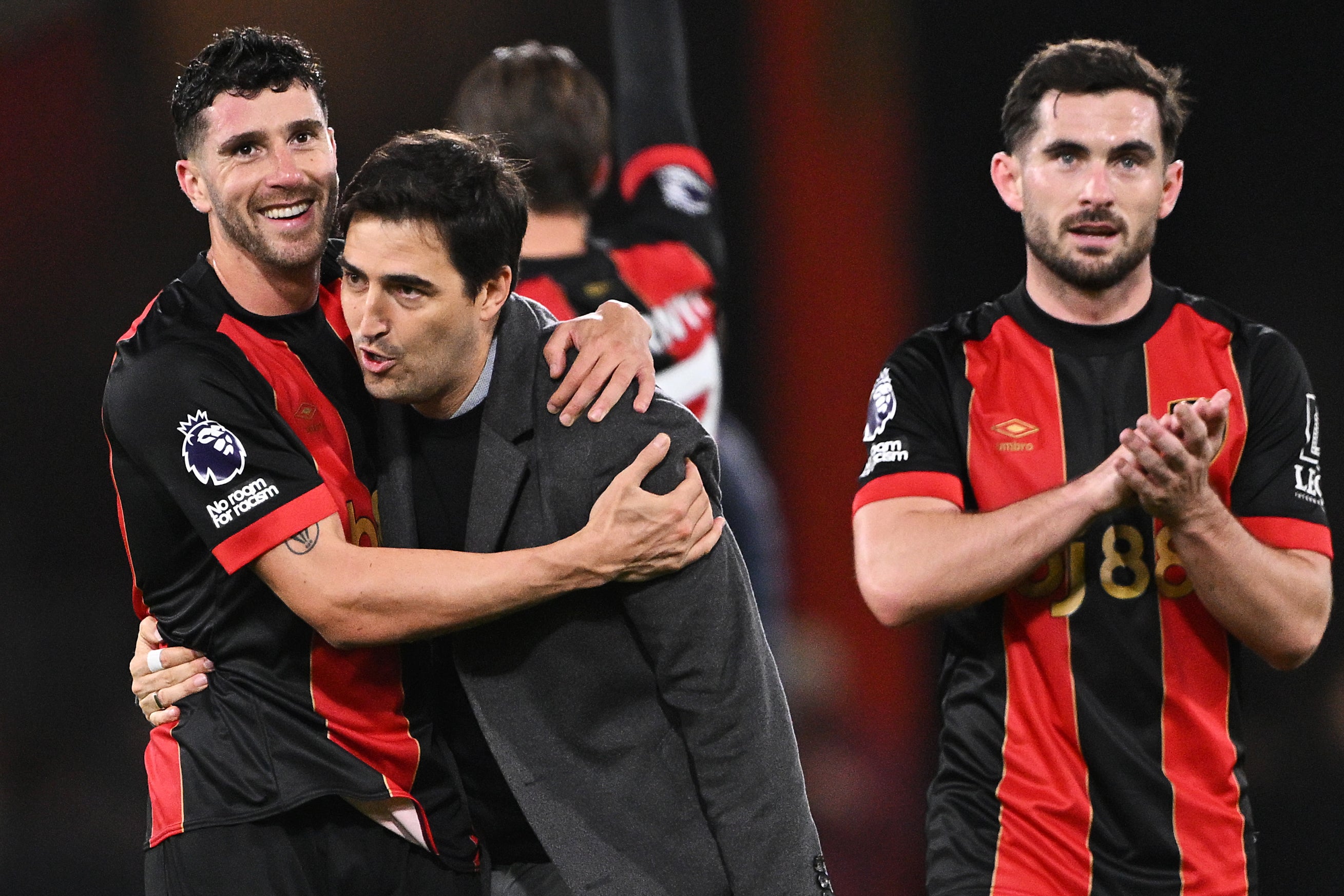
Irola showed that adaptability in a more direct way against Newcastle. Bournemouth were missing nine players, and had a bench with just an hour’s experience of first-team football. Iraola got on with it.
“I don’t want them to think injuries are an easy excuse, ‘we are not at our level and it’s normal we won’t win today’,” he says. “No, we have to approach it in a different way, players available to play in positions that are not preferred. They are doing well and it makes them better players. I’m very proud of them. It has probably strengthened a little bit our togetherness.”
This philosophy comes in a period where football’s tactical hegemony is fracturing. It's a topic that Iraola sounds very attuned to. “Football evolves very, very quickly. What we were talking about 10 years ago is nowadays completely different… even four years.”
Global mass media, and the lightning spread of ideas, accelerate this, as Iraola acknowledges: “All the managers look at winning teams and how we can implement those things in our teams. Look when Pep arrived here, a lot of teams tried to play that way."
That is now evolving, too. Iraola believes a greater tactical variety has helped to make the Premier League more unpredictable this season.
“We are seeing teams like us, Forest or Fulham, who still have this double threat in the wings and full-backs over-lapping. There are big contrasts.
“Forest play very different. They are elite at defending because, even if they spend a lot of time close to their goal, they are not suffering. They have one of the best records. Then you have quality players… a bit like us, no? Giving their level and a little bit extra.”
That “bit extra” is fascinating to hear Iraola talk about. The game’s evolution is why, even though his own playing career between 2003 and 2012 was initially characterised by the great individual creators, Iraola believes many of his peers wouldn’t cut it now. “For me, the players are better than in 2003. They have to do the same things, but much faster. The physical demands are ridiculous. I doubt I could have played at this rhythm.”
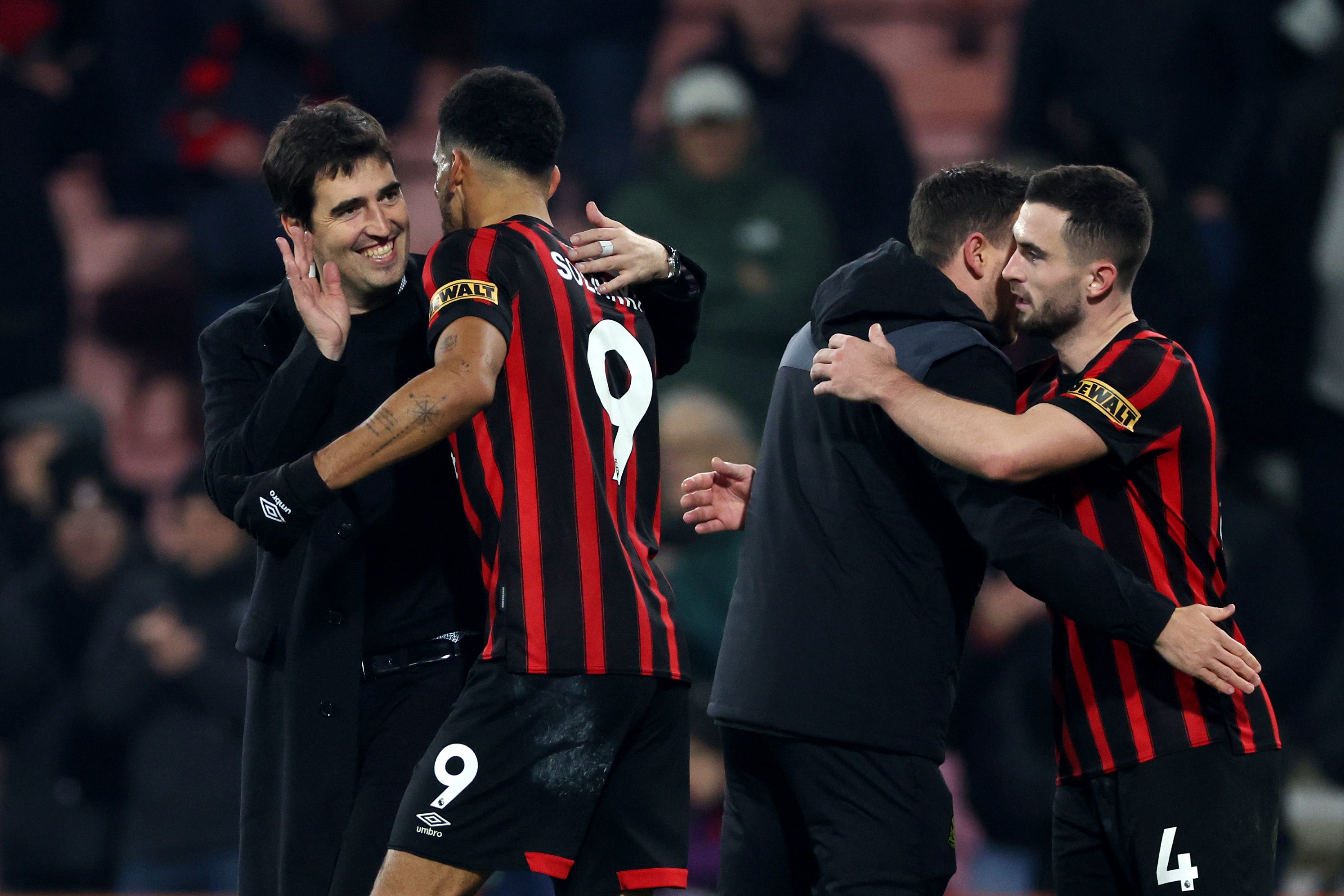
Iraola does make a point of saying that, as a right-back who was “not typical” and instead “an important part of possession”, the modern inverted full-back would better fit him. He is just in awe of the modern game’s power. “Probably, technically and tactically we were as good as the players we see nowadays but there is a physical side we would struggle with.”
That makes it all the more logical he has ensured Bournemouth are the hardest running team in the Premier League, consistently covering the greatest distances.
Iraola’s teams don’t just out-run opposition, however, in the way those with fewer resources have to. They also seek to turn them inside out. When Bournemouth kick off, they immediately launch the ball at the opposition so attackers like Antoine Semenyo and Justin Kluivert all-out sprint at defenders to scramble their approach.
“We try not to give the teams the time to play their patterns, because everyone is prepared to exploit the spaces they have been training,” he explains. “If you are brave, they have to play a game that is not their preferred game. We try to find these scenarios, especially against big teams because they are used to absolute control and the patterns they want. We try, even if it’s risky, to make the game different. I think it improves our chances, even if it doesn’t always work.”
It works a lot. Bournemouth have this season beaten Arsenal, Manchester City, Tottenham Hotspur and Newcastle United, while subjecting Manchester United to 3-0 home defeats in successive seasons. This is a striking continuation of Iraola’s capacity for defying expectation at Mirandes and Rayo Vallecano, but also represents a significant improvement. Iraola was disappointed with Bournemouth’s record against the wealthiest clubs last season, so he specifically worked on it in the summer. “It was an area where we could get some points.”
Few would be so bold.
“The most difficult one is the first win,” Iraola says of such results. “Once you’ve done it, the players start to believe, and the opposition gives you respect.”
Such performances are a natural follow-on from one of the more illuminating aspects of Iraola’s coaching. That is his insistence on improving players, too. Iraola hints that traditional views on a player’s talent ceiling don’t really fit modern football. Instead, a player can have a totally different capacity depending on the way they’re used.
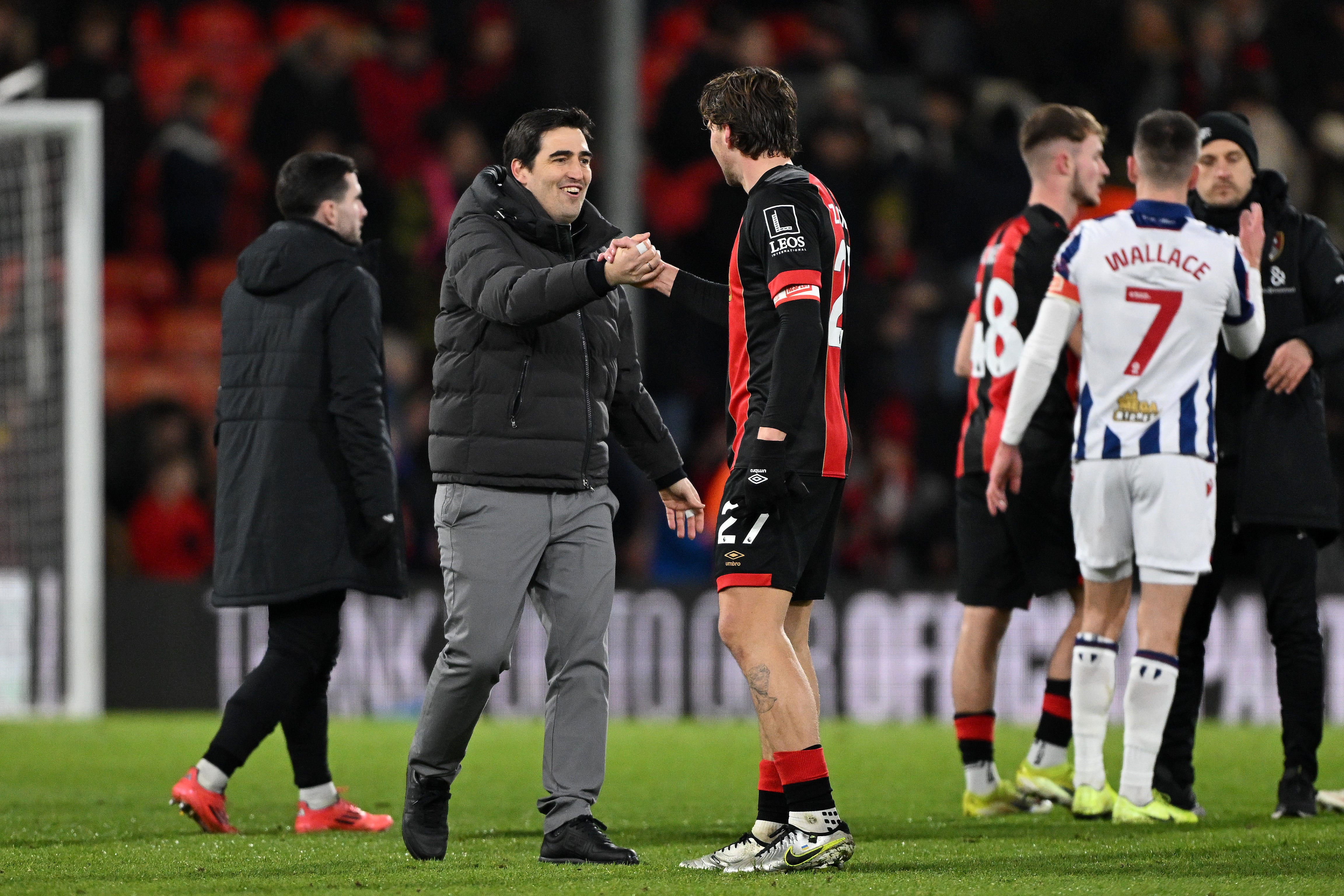
“The context is key,” Iraola says. “For me, the difference between divisions or leagues is time on the ball. There are players that will struggle in lower divisions that can be competitive in the top division because they have the physical profile to do things fast.”
It is why Iraola isn’t one for stubbornly jettisoning players that don’t tactically fit. That follows from his own view, that the manager isn’t the protagonist. “I think it’s the best thing in coaching, to try to help the player find his place that will make him look better. It’s probably the most gratification you feel.”
The effect – and the joy – can be witnessed in the performances of Kluivert, Semenyo, Ryan Christie, Lewis Cook and most of the Bournemouth squad.
Much has already been made of the Basque representation among Premier League managers – Iraola having played with Mikel Arteta and Xabi Alonso at youth club Antiguoko – but he believes the region’s specific football culture can aid such attempts to overperform. Aside from a proud football identity within the dominant Spanish system, there is the adaptability of Basque clubs. They do not have the resources or even recruitment approaches of Real Madrid or Barcelona, given that Athletic only play Basque-linked talent, but they’re still up there.
“At Athletic Club, the strength of the team is always the collectiveness. Because sometimes we have players who probably are not good enough to play in the first division but, in our context, in our environment, they look very good first-team players in LaLiga. We have to find a way to make those players compete at the maximum level.”
In other words, they think about it all a bit more. There’s also that distinctive football culture. Iraola, who is from Usurbil near San Sebastian, beams as he talks about how Basque villages are still filled with a type of street pitch – goals placed on the “frontones”, public courts – that constantly witness play. “That’s the important base, a lot of time playing on the streets.”
Iraola, who talks of bringing that collective spirit to Bournemouth, laughs as he laments one reason he can’t get back home enough. Too many of the flights from Southampton go to beach cities in the south of Spain. His wife still returns regularly, and the family speak Basque at home, but he has only been once in the last year. The Premier League schedule is too intensive for long travel.
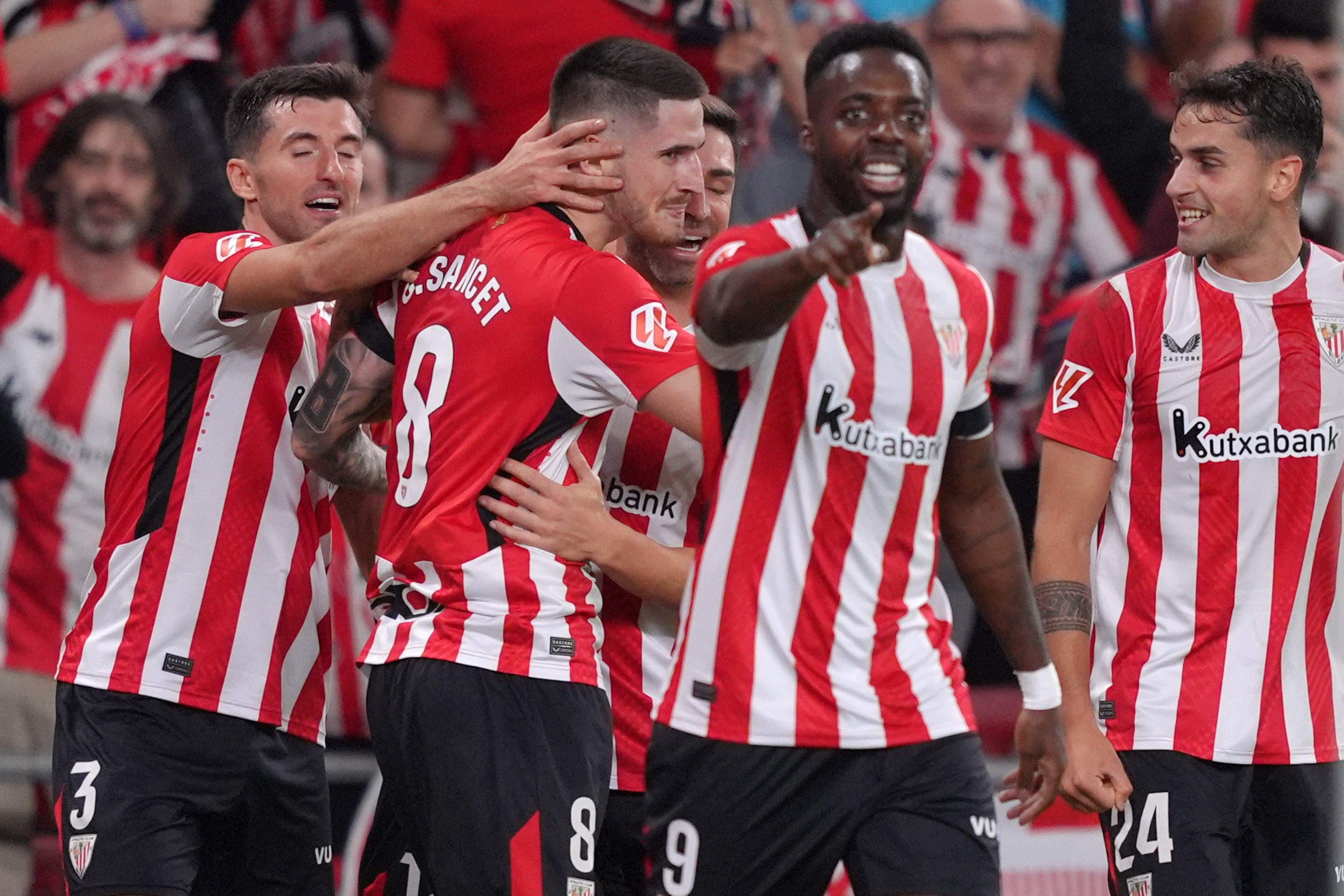
That raises another question, relevant to Iraola’s much-discussed future. That is for how long or how much he wants to do this. In the same way that he isn’t as intense as his peers, he was almost a reluctant coach.
“I never had it very clear that I wanted to be a manager because I always said to my coaches, ‘I don’t envy your work’. They were always worried, with a lot on their minds.”
Iraola admits that he still needs 24 hours to dwell on a game, especially if it’s a defeat. He then insists to his staff to draw a line under it, even victories, and just think positively. “Otherwise, you are still too dependent on the last result, and I don’t want my life and our week to be like this,” he explains
Getting out on his new gravel bike for some of Dorset’s “nice trails” helps this. It is still striking when he says he “doesn’t watch too much football outside the Premier League”, maybe just Athletic or Rayo Vallecano – the club he coached before Bournemouth. Iraola says he’d rather spend time with his family.
“I’ve learned a lot from my playing years. When you are playing, you think everyone is watching you. Then, when you finish playing, you realise you’re not that important. In the end, it’s a game, football. I think I’ve learned now to take things with less urgency or less dramatics. I think it’s the only way to enjoy this profession, otherwise you go crazy.”
It was also that love for the game, rather than any intense obsessiveness, that saw him try management.
“I’ve said many times I wasn’t afraid of failing because I wasn’t really sure this was what I was going to do. I still feel like a player. If I could continue playing, I would. This is the best thing you can do, and I wanted to see if I enjoyed being a manager, or if I felt too much pressure and thought ‘this is not for me’. I wanted to take the decision early and I didn’t care where I started.”
That was actually AEK Larnaca, in Cyprus, which says enough.
“I just wanted to prove myself and see if I could deal with the job. And then, you finish one chance, and another chance arrives, then another, and now we are here. It hasn’t been something pre-planned. I’ve gone year by year, normally one-year contracts, ‘let’s see where we are after one season, if you are happy, if I am happy’.”
You only have to look at Bournemouth, on the pitch and on the table, to know the answer to that right now.







